Lab4P and Cholesterol Study
The anti-cholesterolaemic effect of a consortium of probiotics: an acute study in C57BL/6J mice (Part 2)
SUMMARY
Hypercholesterolaemia is a major risk factor for cardiovascular disease and it has been found that some probiotic bacteria possess cholesterol-lowering capabilities. This study demonstrated the cholesterol-lowering efficacy of Lab4P probiotics and suppression of diet-induced weight gain in an in vivo (mouse) model of hypercholesterolaemia.
Aim
To examine the cholesterol-lowering abilities of Lab4P probiotic consortium in an in vivo mice model.
Method
• 12 male mice were divided into two groups:
– 6 mice were fed high fat diet (HFD) supplemented with Lab4P (5×108 cfu/mouse/day) for 2 weeks
– 6 mice in the control group were fed high fat diet alone for 2 weeks
• Weight gain, plasma lipids and bile acid metabolism parameters were investigated
• All protocols were approved by the Cardiff University ethics review committee and the United Kingdom Home Office and the testing was performed in accordance with the Guide for the Care and Use of Laboratory Animals (NIH Publication No.85-23)
Results
Weight gain
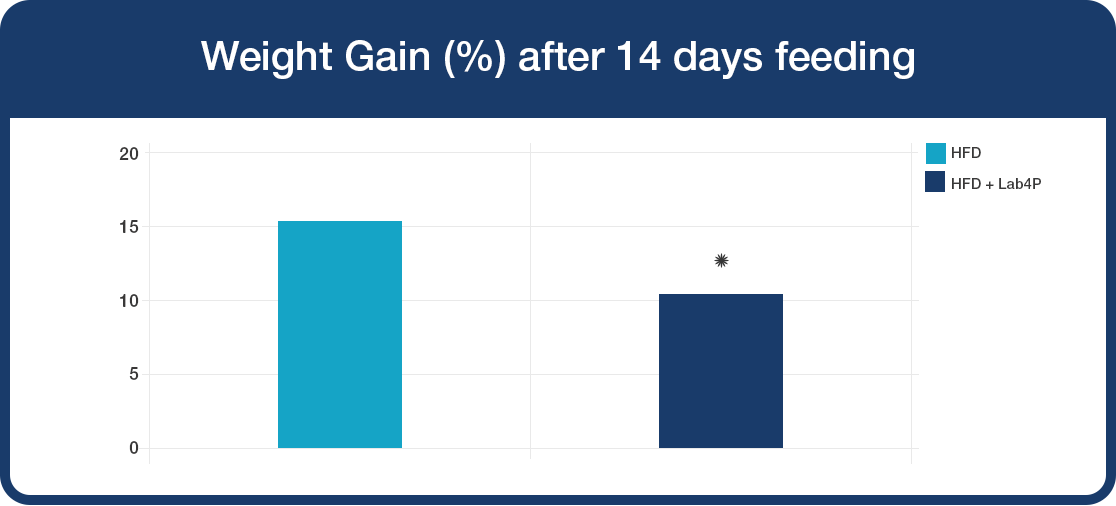
• Mice in the high fat diet plus Lab4P probiotic group gained significantly less weight after 14 days feeding compared to those receiving high fat diet alone (*P=0.025).
Plasma lipids
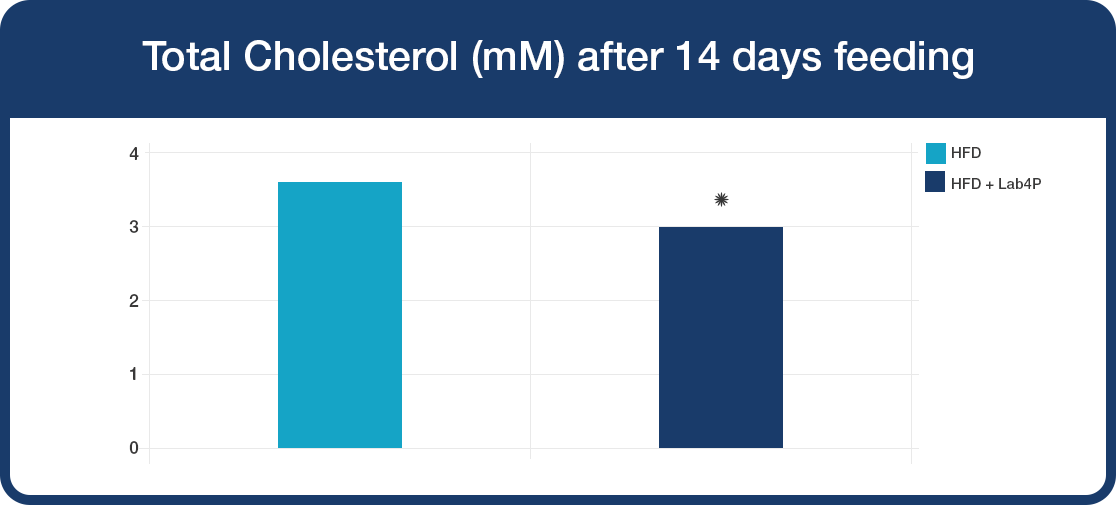
• A 14% significant reduction in total cholesterol levels was observed in mice fed high fat diet plus Lab4P probiotics when compared to those receiving high fat diet alone (*P=0.029).
Bile metabolism
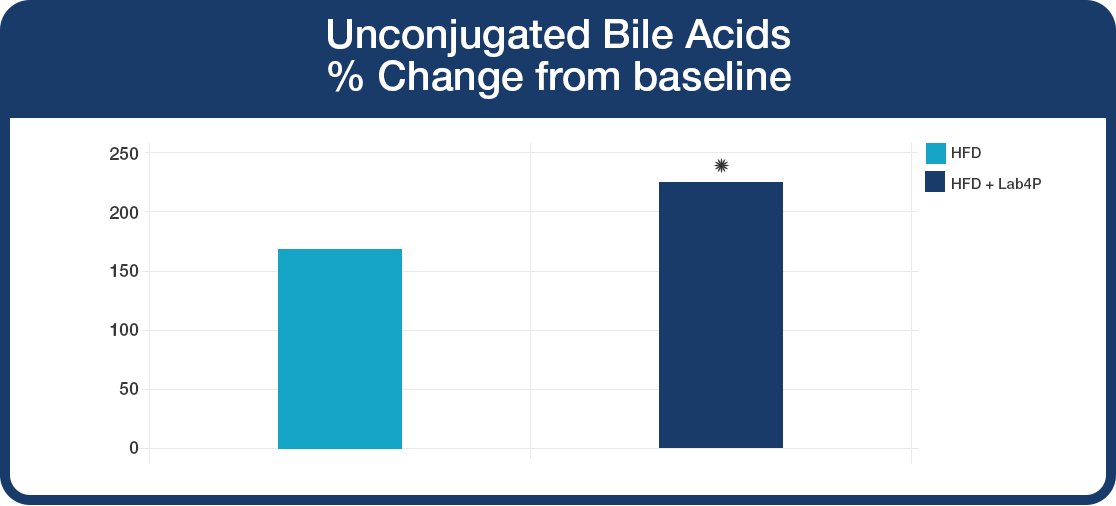
• A 33% significant increase in the levels of unconjugated bile acids were found in the faeces of high fat diet plus Lab4P probiotics fed mice when compared to those receiving high fat diet alone (*P=0.047).
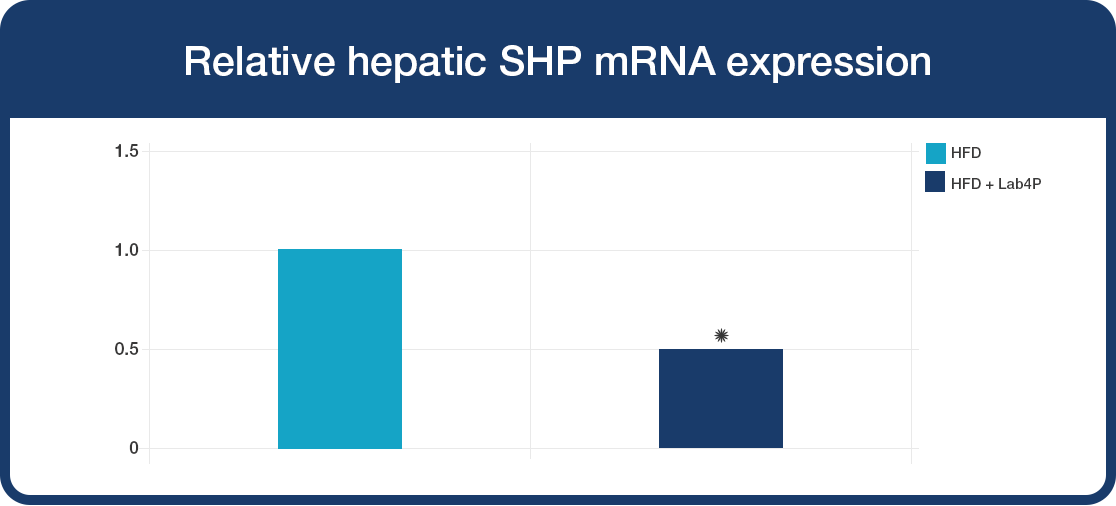
• Significant reduction and induction in the expression of genes involved in hepatic bile synthesis, namely SHP (*P=0.010) and CYP7A1 (*P=0.047) respectively, was observed in mice fed high fat diet plus Lab4P probiotics when compared to those receiving high fat diet alone and is indicative of increased bile production.
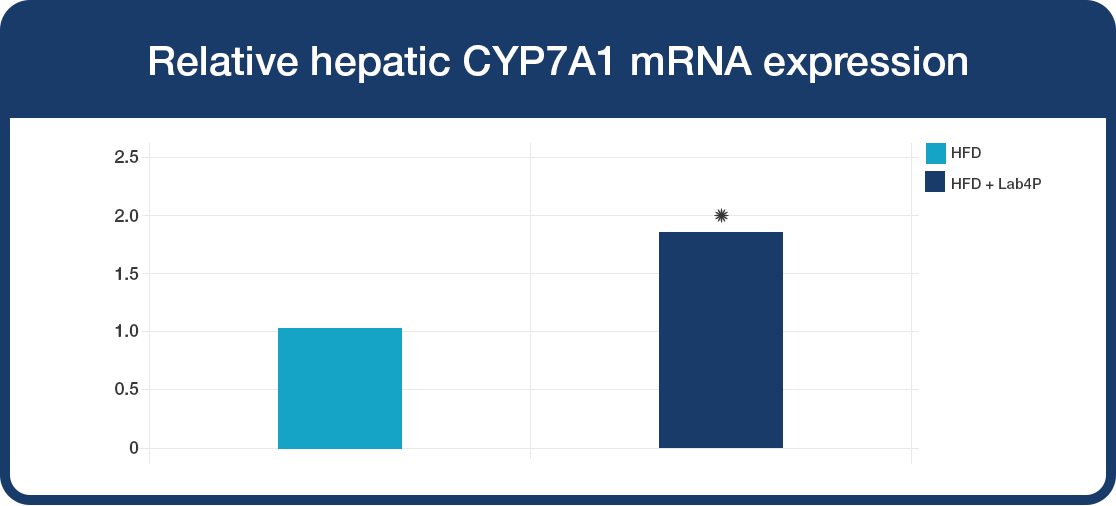
Summary: Proposed Mechanism of Action

1. DECONJUGATION OF BILE ACIDS by Lab4P probiotics in the intestinal lumen making them less readily re-absorbed into circulation
2. EXCRETION OF DECONJUGATED BILE ACIDS is increased to faeces
3. RE-ABSORPTION OF DECONJUGATED BILE ACIDS to blood is reduced
4. BILE ACIDS SYNTHESIS is increased in the liver (SHP decrease, CYP7A1 increase) to replenish intestinal bile acids lost in faeces, resulting in reduced circulating cholesterol levels
Conclusion
Short-term supplementation with Lab4P probiotic consortium appears to be beneficial for the reduction of cholesterol levels and diet-induced weight gain.

